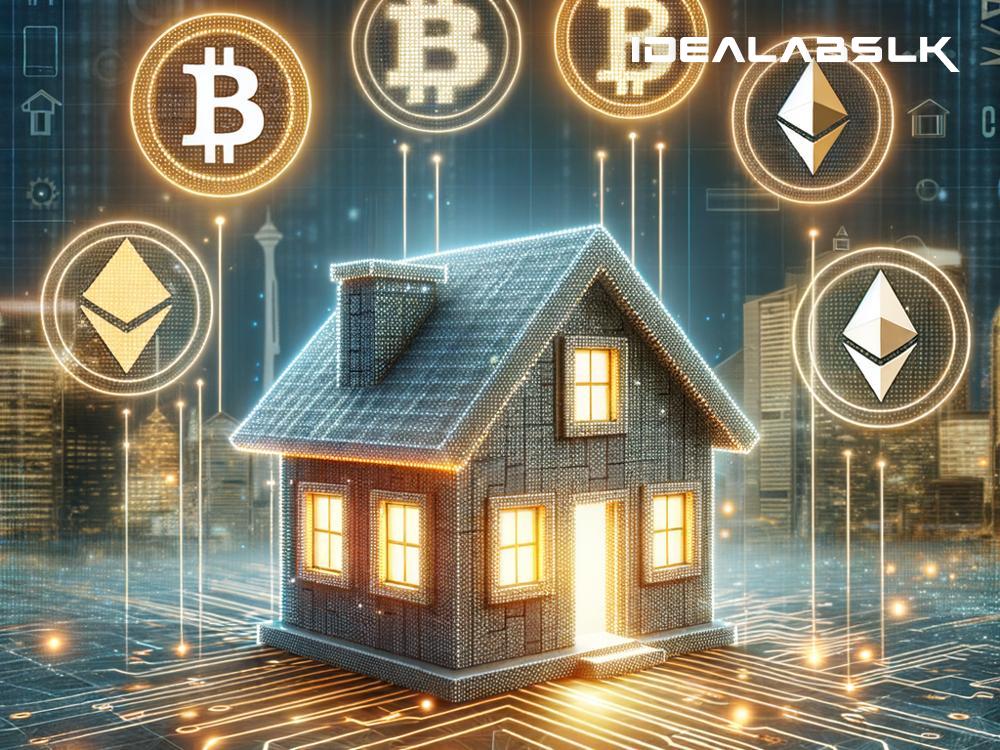Turning Properties into Pixels: How Blockchain and Cryptocurrencies are Shaping the Future of Real Estate
When we think about real estate, images of sprawling lands, cozy homes, and towering skyscrapers come to mind. It's an industry that, for a long time, seemed untouched by the rapid digitalization transforming other sectors. However, the winds of change are blowing. Blockchain and cryptocurrencies are knocking on real estate's door, promising a revolution in how properties are financed, bought, and sold. But what does this mean for investors, homebuyers, and the real estate industry at large?
Breaking Down Blockchain and Cryptocurrencies in Real Estate
To understand this revolution, we first need to grasp what blockchain and cryptocurrencies are. Imagine blockchain as a digital ledger or a record book that's copied and stored across thousands of computers. This ledger securely and transparently records transactions in a way that's nearly impossible to tamper with. Cryptocurrencies, like Bitcoin or Ethereum, are digital or virtual currencies that run on this blockchain technology, allowing for secure and anonymous transactions.
So, how do they fit into real estate?
The Digitalization of Property Financing
Traditionally, buying a property involves a lot of paperwork, middlemen, and, most significantly, financial hurdles. Enter cryptocurrencies. Using these digital currencies in real estate transactions simplifies and streamlines the process. No need for traditional banks; transactions can be done directly between buyer and seller. But it's not just about making payments easier. The real game-changer is blockchain.
Tokenization: Owning a Piece of the Property Pie
Blockchain introduces something called 'tokenization' to real estate. This means breaking down the ownership of a property into tokens represented on the blockchain. These tokens can then be bought and sold, just like cryptocurrencies. This is revolutionary. Why? Because it lowers the entry barrier to real estate investment. You don't need to buy an entire property to invest; you can own a piece, a token, making investment opportunities more accessible to a broader audience.
Speed and Security: A New Era of Transactions
Real estate transactions are notorious for their complexity and the time they consume. Blockchain simplifies these processes significantly. Since the blockchain ledger is immutable and transparent, every step of a transaction, from verifying ownership to ensuring funds are correctly transferred, is secure and efficient. This reduces fraud, speeds up transactions, and cuts down on the need for so many middlemen – think of all the savings in fees and charges.
The Impact on Property Financing
Cryptocurrencies and blockchain technology are also making waves in property financing. They're paving the way for more innovative financing models, such as peer-to-peer lending facilitated by blockchain. This could potentially lower borrowing costs and offer more competitive loan terms, benefiting both lenders and borrowers.
Challenges Ahead
However, it's not all smooth sailing. The integration of blockchain and cryptocurrencies into real estate comes with its set of challenges. Regulatory hurdles, technological complexities, and the volatile nature of cryptocurrencies are significant concerns that need addressing. Moreover, the industry's readiness to adopt and adapt to these new technologies remains a question.
Looking Forward: The Future of Real Estate Powered by Blockchain
Despite the challenges, the potential of blockchain and cryptocurrencies in transforming real estate is undeniable. We're looking at a future where buying a home, investing in a property, or getting a mortgage could be as simple as clicking a button. The benefits, from increased accessibility and improved efficiency to reduced costs and enhanced security, make a compelling case for the role of these technologies in shaping the future of real estate.
As we stand on the cusp of this digital revolution, it's clear that the traditional real estate landscape is about to be transformed. Blockchain and cryptocurrencies are not just buzzwords; they are the building blocks of a new era in property financing. Whether you're an investor, a homebuyer, or a real estate professional, understanding and embracing these changes will be key to navigating the exciting future ahead.
In summary, the convergence of blockchain and cryptocurrencies with real estate is pioneering a wave of innovation in the industry. By democratizing access, simplifying transactions, and ensuring security, these technologies are redefining what it means to buy, sell, and invest in real estate. The journey is just beginning, and those who are ready to ride the wave of digital transformation stand to gain the most in the new real estate frontier.

